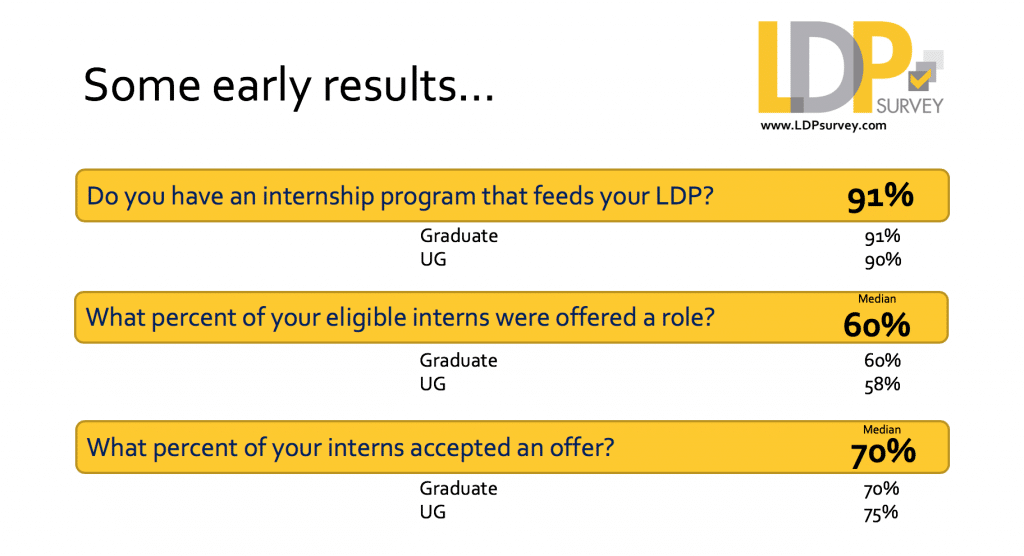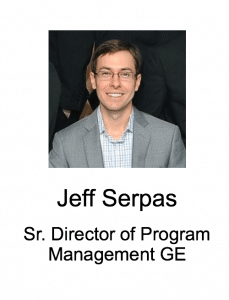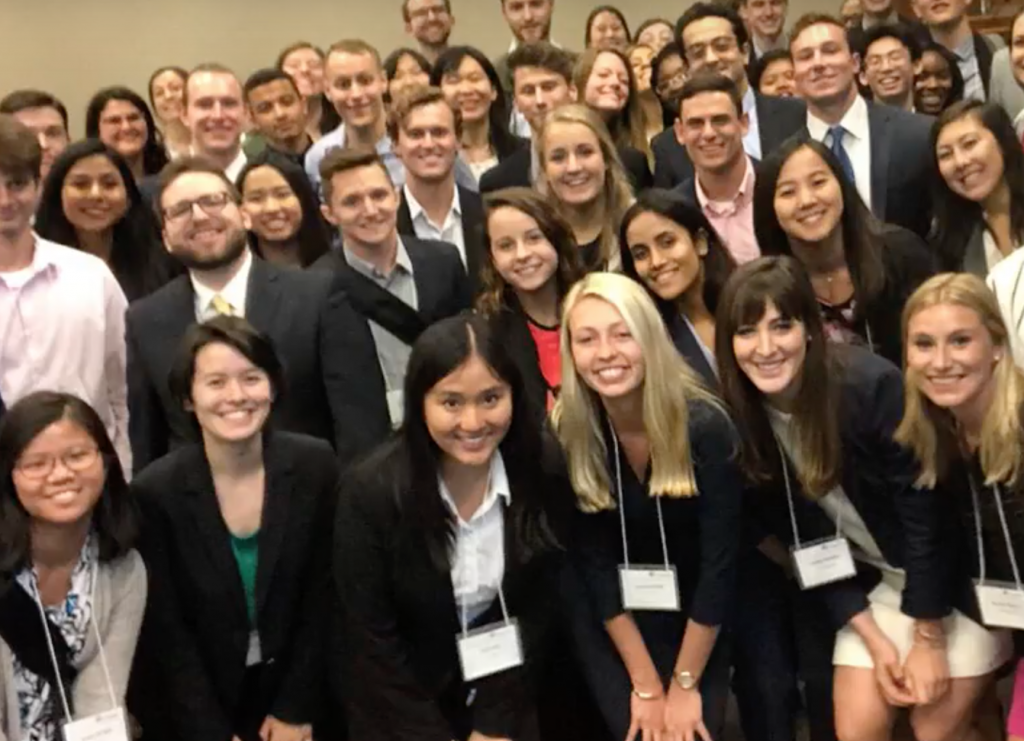Intern Conversion: Observations and Discussion (Part 1)
Intern Conversion: Observations and Discussion (Part 1)
As program directors and managers, we’re focused on cultivating the talent of our program associates. But many of us are also constantly assessing the potential of program candidates – either personally, or through our colleagues in campus recruitment.
Our job is about managing talent pipelines. Early career programs are a pipeline to organizational leadership. Today we’re going to talk about the other pipeline—the one to the early career programs themselves.
Fall recruiting season is in full swing, so it’s time for a dive into issues surrounding summer internship programs and how they impact program outcomes.
Brought to you by Benivo and LDP Connect, the discussion below (divided into three parts—you can read part two here and part three here) is an exploration of learnings from this past year that can make your internship program an even better source for candidates for your full-time program.
Join guest panelists Rebecca Cuff (Investment Management Development Program Director, Vanguard) and Jeff Serpas (Sr. Director of Program Management, GE) as we talk about the intern pool, about what interns and managers expect from internships, and to what extent are those expectations are being met.
Interns By The Numbers

Before we start the Q&A, let’s check some figures:
- A recent LDP Connect survey showed that 91 percent of responding organizations use internships as a feeder into graduate programs; 90 percent have internship programs that feed into their undergraduate programs. Sixty percent of graduate program-eligible interns received an offer; 58 percent of undergraduate program-eligible interns got an offer. (For the purposes of the survey, “program-eligible” means the candidates have an appropriate background for the program)
- 70 percent of interns who were offered a role in a graduate program accepted; 75 percent of interns who were offered a role in undergrad programs accepted.
- Incidentally, of the interns who were offered a role, the lowest percentage offered a role were in engineering programs (38 percent); 71 percent of HR interns were offered roles, making it the highest rate of offer per functional area.
As you see, intern programs impact most of us in a big way. Now let’s see what Jeff and Rebecca have to say about how we can maximize this impact.
Streamlining the Conversion-to-Offer Process
How was your intern conversion process for the season? Did anything in particular happen this year that didn’t happen in prior years?
Rebecca: From a recruiting standpoint, with each successive year, you develop improvements in your process.
Everybody involved was a little more attuned to the recruiting process, so I think it all went a little bit more smoothly. I think we got closer to identifying the talent that we were looking for for each of the programs at Vanguard.
How did you get closer? What helped you?
Rebecca: Working closely with our partners! Everything is a team effort, so you have your recruiters, your university relations recruiting team, and internal technical experts as part of the recruiting process. We’re validating what we gather from in-person interviews with some technical experts to select a potential launch destination for these interns. That gets them bought into the process as well, but also helps us to validate that we’ve done a great job identifying talent as we’re bringing them in.
That’s interesting. So are you seeing any of the evaluators raising their hands for folks in your program as part of going through this process?
Rebecca: Yes, it does help with engagement overall. It can be sometimes a little bit challenging to get people to buy into hosting an intern. They think of it, initially, as ten weeks of a drain on resources.
But when they’re engaged through the entire life-cycle, they tend to buy in a little bit more. They have something vested in the process and the people.
Jeff, what about you? How did your season go? Any learnings that you can share that might be different this year from prior years?
Jeff: The main thing that we focused on this year was timeliness in the summer intern conversion-to-offer process. So we’re trying to reduce the lead time from the time that they interview before they leave for the summer to the time that they either hear ‘yes’ or ‘no’ from GE.
Making sure that interns knew where they stand before they get back to campus and understand how intently they need to attend career fairs on campus in the fall season was something that we worked on improving this year.
Anything particular that you might highlight that you did too just to improve that that speed?
Jeff: We did a better job of tracking our candidate pool of folks that were recommended by their summer intern assignment leader and understanding who was being recommended. And once we conducted our interviews, applying a little extra pressure from a communication standpoint to make sure we let candidates know where they stand.
In the past, GE’s development program)would keep people on the back burner in case they got declines from their first round. We tried to encourage people to not have as many ‘silver medalists’ and really … only go with your top picks.
Is there a specific date that you set this year when those decisions had to be made?
Jeff: We tried to push no more than four weeks from the time of interviews to decisions. So we didn’t let people straggle on until they were back on campus. So usually from the time they finished the internship until they started school was two to four weeks. We tried to make sure that they had that decision early on, before they had the opportunity to go to career fairs.
‘Essentially It’s a 10-Week Interview’
Rebecca, what sort of commitments do you make to your interns in terms of their expectations for full-time consideration? Are they being told at the front end that this is a feeder for potential future opportunity? If so, how is that communicated?

Rebecca: I wouldn’t say there is a commitment that they’re going to get an offer. But we describe this as the primary feeder into the organizations where the specialty programs are feeding into. We have six different programs, and this is the direct pipeline into those programs.
We don’t communicate any target. We focus on people with the skillsets and the competencies for the program. Essentially it’s a ten-week interview, and by that time we ought to be able to assess each candidate.
So, of course we get the question ‘what percentage of interns get the offer?’ And of course that varies from year to year and also varies from program to program. It can be 40-70 percent.
I focus less on that percentage … But from a program standpoint, we’re bringing in people who we think will be successful. But there is no guarantee. They really have to show what they have during the summer.
Is that made transparent to the candidates? Do you share those numbers with them?
Rebecca: We give these very rough (program offer rates). But when we’re communicating to the interns, we really try to focus not on these broad probabilities, but on giving them guidance on how they can be successful in what they’re demonstrating while they’re in the internship program.
So we try to the back off from being put into a corner. ‘What are my chances, based on numbers?’ That’s really not the way we want them to look at it.
Makes sense. Jeff, what about you guys? Are you transparent in terms of what the possibilities might be for an intern?
Jeff: The thing we broadly communicate while they’re interns is that the experience is the primary feeder for our global leadership programs. They’re being evaluated as part of that summer internship, so that is their ‘interview.’
We don’t communicate their chances. Every program in GE hires roughly two times as many interns as the full-time head count they’ll hire into the LDP. If they were to ask on an individual basis, we’d probably tell them, very similar to Rebecca, around 40-60 percent. But it’s not something that we have a call globally and say ‘here’s your chances.’
Being an intern is giving them the best chance of getting a full-time position.
Narrowing the Field: How Program Managers Decide Who Gets Offers
Do either of you have an extra evaluation process for an intern before making an offer? Is there any sort of continued interview after an internship or is the internship itself the full evaluation process?

Jeff: We have a two-phase interview in G.E.’s IT and software programs for folks who are interested and who get a recommendation from their summer internship manager based upon their performance over the summer.
One phase is behavioral based; one is a group case study, so we can see how they work as a team. That’s conducted … the same day that the behavioral interviews happen. There is … usually a team of four to six of the interns and then there will be four to six assessors in the room … to oversee the group. The interns are asked to put together a presentation on a certain topic. They have to do a little bit of research in the course of 45 minutes, and then the team has to present its findings.
All we’re looking for is: How do they participate? Are they dominating the conversation and not letting others contribute their ideas? Or are they just sitting there on the sidelines silently and not contributing at all?
It’s not necessarily technical competencies but more about how they act when put a in a team setting and asked to do something that’s maybe outside of their comfort zone.
Rebecca: What we do through the internship program is, we take that as an opportunity to coach and develop them along the way. They have such a close relationship with the rotation manager, the internship manager, myself and the other people they’re networking with during the summer that we feel like we’re going into the end with a good sense of who we want to extend an offer to.
We do formal mid-point and end-point discussions, where we’re going over the specific strengths of each and every intern and their development opportunities. So we coach them quite intensively through the summer.
So at the end if they’re not getting an offer, they have a good sense of why. Some of them are confused because there’s a spectrum: You can be good and you can be really great—it depends on what the bar is for that program.
To listen to the recorded webinar or view the associated PowerPoint slides, click the link(s) below. Please note that you will need a free Community account in LDP Connect to access this information. If you don’t have an account, you’ll be prompted to create one.
- Click to Listen
- Deck.pptx



